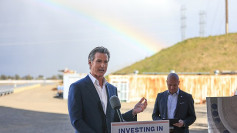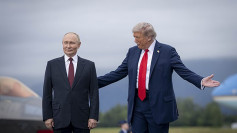U.S. officials are reportedly finalizing plans to send approximately 30 Abrams tanks to Ukraine
Officials told CNN that it typically takes several months to train troops to use tanks efficiently, and that the timetable of the tanks' actual delivery is still uncertain.
The forthcoming announcement appears to end a diplomatic impasse with Germany over the supply of tanks to Ukraine. German authorities had explicitly said that they would only send their Leopard 2 tanks to Ukraine if the U.S. also supplied its M-1 Abrams tank, despite U.S. officials constantly claiming that the M-1 Abrams system was extremely complicated and challenging to maintain.
The U.S. decision to send Abrams tanks to Ukraine represents a sharp departure from its declared attitude, allowing Germany to send its tanks and clearing the path for other European countries to send more Leopard 2 tanks.
Top national security officials in the administration have carefully explored what steps they may take to persuade Germany to send the Leopards.
The US and its allies failed to persuade German officials to deliver them as part of Berlin's upcoming round of military support to Ukraine on Friday during a meeting of western defense leaders in Germany. The German Defense Minister, however, Boris Pistorius, stated on Tuesday that "We are preparing our decision, which will come very soon" regarding the tanks.
After "months of debate," German Chancellor Olaf Scholz decided to send Leopard tanks to Ukraine, according to a report in the German daily Der Spiegel published on Tuesday.
The Biden administration has never ruled out sending American tanks totally, but US officials stated publicly last week that it was not the proper time to send the 70-ton M1 Abrams tanks because they are expensive and require extensive training to operate.
According to National Security Council Coordinator for Strategic Communications John Kirby, the decision to send U.S.-made Abrams tanks will be based on an "iterative process" of assessing Ukraine's needs, what aid the U.S. should send, and technical considerations surrounding tank operation and maintenance.
Kirby acknowledged that the complexity of the Abrams systems could play a role in the U.S.' decision to share tanks with Ukraine, adding that "with any advanced system, you have to factor in things like supply chain and maintenance time."
Ukraine's President Volodymyr Zelensky has consistently asked Western allies for modern tanks as his country prepares braces for an expected major Russian counteroffensive in the spring.






